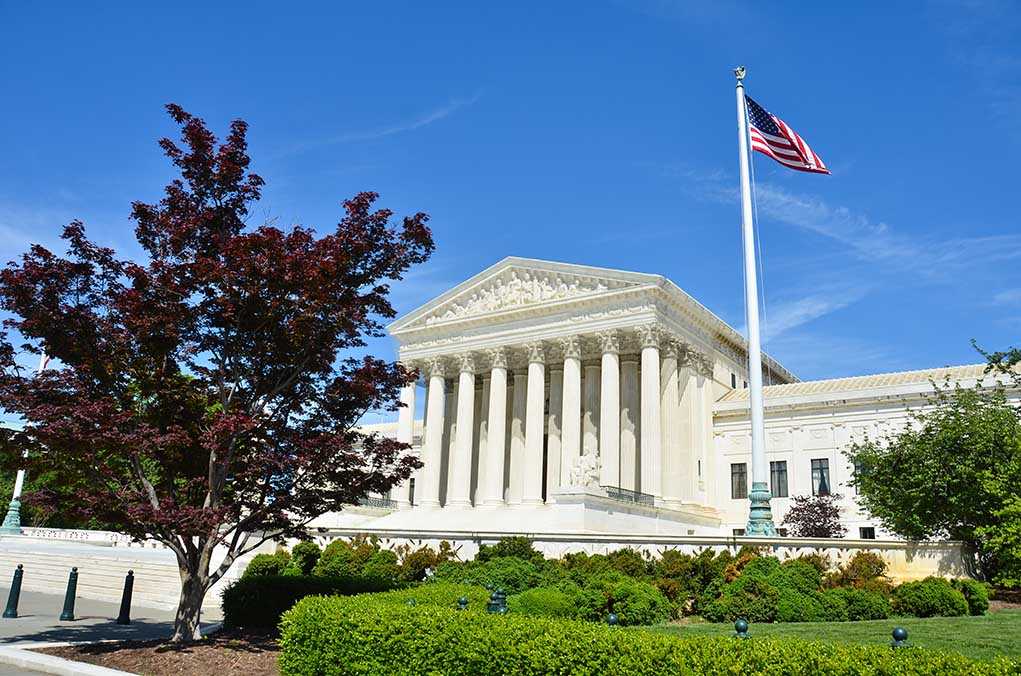
Constitutional limits on presidential power hang in the balance as the Supreme Court prepares to decide whether Trump’s $3 trillion tariffs—enacted to protect American jobs and sovereignty—will stand or be struck down as an illegal tax on the nation.
Story Snapshot
- The Supreme Court will determine if Trump’s emergency tariffs are legal or an unconstitutional overreach.
- Lower courts ruled only Congress can impose tariffs, striking down most of Trump’s orders.
- The outcome sets a precedent for executive authority, economic security, and future U.S. trade policy.
- Small businesses, states, and millions of Americans await clarity amid economic uncertainty.
Supreme Court to Decide Fate of Trump’s Tariffs
The Supreme Court is set to deliver a high-stakes ruling on the legality of President Trump’s sweeping tariffs, which were imposed in 2024 under the International Emergency Economic Powers Act (IEEPA). The Trump administration used emergency powers to level tariffs on nearly all imported goods, citing national security and the devastating impact of fentanyl trafficking. Lower courts have already declared these tariffs invalid, stating that only Congress possesses the constitutional authority to levy such measures. The Supreme Court’s expedited review will determine whether the executive branch can wield such broad economic tools, or if these actions represent a dangerous encroachment on legislative powers.
Trump’s tariffs—described by critics as a “$3 trillion tax”—represent an unprecedented assertion of presidential authority. The policy set a minimum 10% tariff on imports, with rates rising as high as 50% for certain goods. Small businesses and states quickly challenged the move, arguing it placed an unjust burden on American consumers and violated the separation of powers. The legal battle has underscored deep divisions over who should control trade policy, with the federal courts so far siding against the White House. The Supreme Court’s decision, expected after November 2025 oral arguments, is poised to define the scope of executive power for years to come.
Impact on American Businesses and Families
For American businesses, especially small importers and manufacturers, the uncertainty surrounding the tariffs has been devastating. Many report soaring costs, disrupted supply chains, and difficulty planning for the future. States such as Oregon joined the legal challenge, emphasizing the financial harm and economic instability caused by fluctuating tariff rates. While supporters of the policy argue that tough tariffs are necessary to combat unfair trade and protect U.S. manufacturing, opponents fear that unchecked executive action opens the door to reckless fiscal policy and government overreach. The stakes are high—not just for business owners, but for every American family who could see higher prices and reduced choices if the tariffs are upheld.
Beyond the immediate economic fallout, the ruling could have far-reaching implications for the balance of power in Washington. Traditionally, Congress has controlled tariff policy, ensuring that no single official can act unilaterally on such a massive scale. The Trump administration’s reliance on emergency declarations to justify economic measures tests these constitutional boundaries. Legal scholars warn that a decision upholding the tariffs could embolden future presidents to bypass Congress and unilaterally reshape the economy, undermining the checks and balances that safeguard American liberty.
Executive Authority Versus Congressional Power
At the heart of the case is a fundamental question: Does the president have the authority to impose sweeping taxes on the American people without congressional approval? The International Emergency Economic Powers Act was designed to counter “unusual and extraordinary threats,” not to serve as a blank check for economic experimentation. Previous attempts to use IEEPA for broad actions—such as bans on TikTok and WeChat—were rebuffed by the courts. The Supreme Court’s willingness to fast-track this case signals the gravity of the constitutional issues at stake. With a conservative majority on the bench, many expect a ruling that reins in executive overreach and reaffirms Congress’s central role in setting trade policy.
Both sides have marshaled formidable legal teams, with Solicitor General D. John Sauer defending the tariffs as essential for national security and economic strength. Challengers, including leading small businesses and several states, insist that the tariffs violate core constitutional protections. The outcome will not only impact current trade policy but will also set a lasting precedent for how presidents wield emergency powers. As the nation awaits the Court’s decision, Americans concerned about government overreach and the erosion of constitutional checks and balances are watching closely.
Supreme Court Is Told Trump Tariffs Are Illegal $3 Trillion Tax.
Small businesses challenging many of Trump's global tariffs urged the US Supreme Court to affirm lower court rulings that the import levies amount to a massive illegal tax on American…
https://t.co/Y2S360fi7g— CLH (@CLH111354) October 21, 2025
President Trump and his supporters warn that overturning the tariffs will undo hard-won gains in U.S. investment and global trade leverage. Critics, meanwhile, point to the dangers of unchecked executive action and the potential for runaway government spending. The Supreme Court’s ruling will determine not just the fate of one policy, but the boundaries of presidential power and the future of American economic freedom. One thing is clear: the decision will have lasting consequences for every American who values limited government and the rule of law.
Sources:
Supreme Court agrees to decide the fate of Trump’s tariffs
The Supreme Court’s decision on Trump tariffs will have lasting impact on US economic statecraft
Trump warns US will struggle for years if Supreme Court rules against him on tariffs
Court of Appeals for the Federal Circuit, Opinion 8-29-2025











